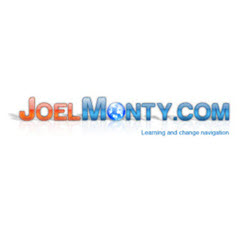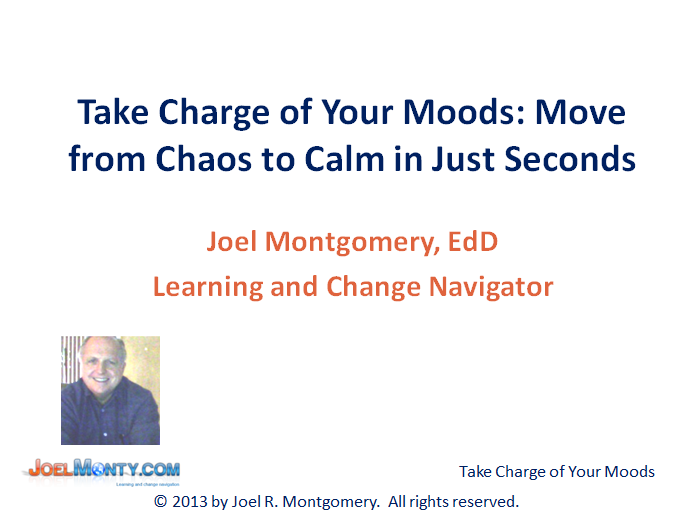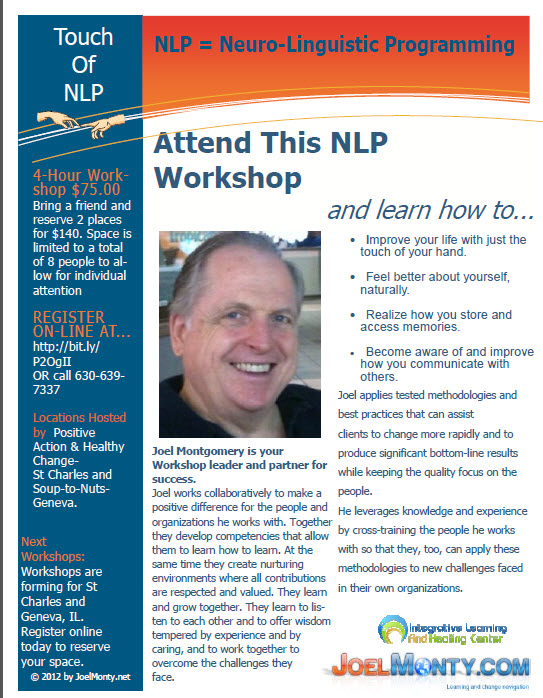While meeting and greeting people at the Integrative Learning and Healing Center.org booth (#52, showcasing JoelMonty.com services) last Sunday, September 29th, at the Fox Valley Holistic Health Celebration, I had time to reflect on insights about the Learning and Change marketplace.
For many people, change is not welcome. While it is good to say that people want change (to lose weight, build confidence, exercise, eat healthy foods, improve financial situations, etc.), many people have a vested interest in leaving things the way they are. The “desired” change is like “winning the lottery.” (All at once for just the cost of a ticket.)
Real learning and change usually requires work. As a Learning and Change Navigator and Coach, I know about the work involved. I help my clients work through the learning and change process, step by step.
None of the people who stopped by my booth at the Holistic Health Celebration was ready to explore learning and change with me that day. I’m offering a workshop, “Take Charge of Your Moods” on Sunday, October 6, 2013, from 2 to 4 PM at Soup to Nuts, 716 W State St, Geneva, IL. So far no one has registered for the workshop, even when offered at a special rate connected to the Holistic Health Celebration ($30). (Visit https://JoelMonty.com/take-charge-of-your-moods/ to register.)
My friend, Rich Erschik, frequently spoke with me about this challenge. His business was “Leads to Sales” (though now he is a “Leads to Sales” Consultant and Trainer). Many of the sales people and other executives at companies he worked with did not want to learn and change when he showed them better ways to convert leads from trade shows to actual client sales. The risk of learning and change appeared to be greater than the discomfort of living with the “status quo.”
In my more than 40 years as a Learning and Change Navigator and Coach, many of the individuals at my client companies were not ready for the learning and change the company had contracted with me to bring about. These employees often wanted change at a lower level than that projected by the parent company.
In some instances, the parent company wanted a major change that violated the corporate DNA (the essential core of the business that was the hallmark of its success). When a change is in conflict with the corporate DNA, if the change takes place, the entire company is threatened. If it doesn’t take place, the advocates for the change could get in real hot water with the parent company.
In today’s economic times in the USA–even more so when Congress cannot approve a budget for the 2013-2014 fiscal year–learning and change is needed at unprecedented levels and organizations, groups, and individuals who need to change to adapt and to survive and to be more successful are reluctant to risk the change or to invest in support for the change even when they know it’s needed.
I need to expand my personal learning and change market place. When you read this, refer it to a friend. I need to do more online workshops (webinars) so that people don’t need to visit me in Geneva to get the benefits from working with me to help them learn to change more successfully.
What do you want to learn to change? Let’s see if I can assist you.
There is no such thing as small change. All change is important to someone.



